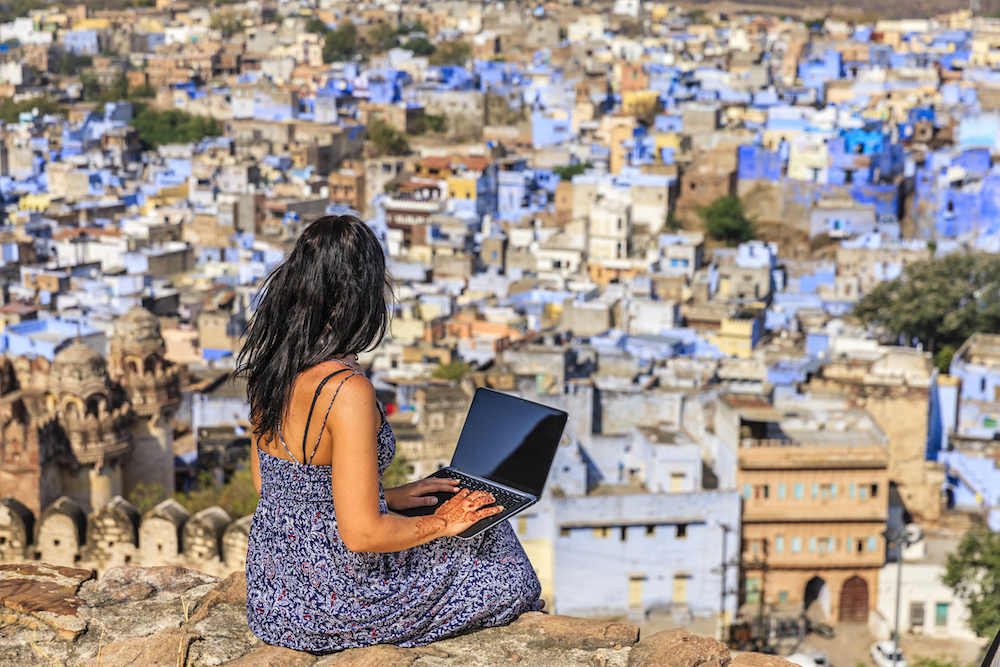- Google will invest $10 billion in India’s tech sector, with nearly half going to telecoms giant Jio Platforms.
- Google joins a growing list of American technology companies and other investors backing projects in India.
- India will need to attract additional investment if it’s going to meet Prime Minister Narendra Modi’s goal of becoming the world’s second-largest economy by 2030.
Google’s $10 billion investment in India’s technology sector amid the COVID-19 pandemic, which has sent the country’s economy into a deep downturn, is also a bet on the nation’s resilience, experts say.
CEO Sundar Pichai announced the investment as part of plans to make “internet affordable and useful for a billion Indians.” Two days later, Google revealed it would spend $4.5 billion to gain a 7.7% stake in Jio Platforms, the digital technology arm of India’s largest company, Reliance Industries. Google’s pledge comes amid a rash of negative, pandemic-related headlines including the start of a seven-day lockdown of Bengaluru, India’s tech hub beginning on Tuesday.
“The $10 billion Google for India Digitization Fund recognizes India’s continuing need for digitization,” Rafiq Dossani, director of the Center for Asia Pacific Policy at the RAND Corporation, told Karma.
Google said the investment focuses on bringing affordable access and information to every Indian in their own language, while building new products to meet India’s special needs. India is struggling to overcome poverty and illiteracy as the number of its inhabitants surges. The country’s population of 1.39 billion is set to overtake China to become the world’s largest in 2027, according to the United Nations.
“My take is that the investment is predominantly focused at delivering useful content in regional vernacular languages,” Benedict Hayes, executive director of Ethinos Digital Marketing, told Karma. “Voice will be a huge driver of this, so the investments will lie with the Google AI and NLP (natural language processing) engines for the many native languages of India, and then further investments into nurturing the creation of content for the second half of India.”
Jio Platforms has India’s biggest cell phone network, attracting almost 400 million subscribers since its founding in 2019. Jio also offers an array of apps for everything from online grocery shopping to video streaming.
“This is a big move,” Hayes said. “They and Facebook have both heavily invested into Reliance Jio. Jio’s goal is to connect rural India, and move the current online community from 500 million to the 1 billion mark. A lot of the people when they come online will not be able to read, write or understand English, and will solely be using mobile devices.”
Google and Jio Platforms have agreed to develop an entry-level smartphone with access to the Android and the Play Store, which could further expand the number of smartphone users. This is hot on the heels of Facebook’s announcement of a $5.7 billion investment in April, and reports that KKR, Vista Equity Partners and others were taking stakes in Jio.
“India has, for several years, been an attractive destination for global capital in its IT sector,” Dossani said. “I think the timing is interesting in that several large American IT firms are investing so visibly in India at this time when the U.S. economy is under strain, as is the world economy, including the Indian economy.”
India will need to attract more investment if the country is going to fulfil Prime Minister Narendra Modi’s goal of becoming the world’s second-largest economy by 2030. The nation’s economic sprint has come to a halt because of COVID-19. The IMF projected in a June report that India’s economy will contract by 4.5% this year — the lowest forecast for the country since 1961.
“Whatever the reason, this is a vote of confidence in India’s opportunities,” Dossani said. “In my opinion, there are few countries with long-term opportunities that will last decades, and India is one of them, despite the short-term concerns.”






















